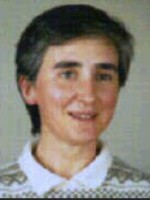resumo
The aim of this study was to evaluate trace element distribution in soils developed on gossan mine wastes and their bioavailability for Cistus ladanifer. The ability of this shrub to accumulate these trace elements and its germination were analysed to confirm the suitability of this species for phytostabilization of mining areas in Mediterranean conditions. Plants and soils were collected in Sao Domingos mine and Pomarao (non-contaminated site). Concentration of As, Cu, Pb and Zn in soils (total and associated with different soil phases) and roots/leaves/seeds were analysed. Mine soils showed contamination with great total concentrations: As (2643 mg/kg), Cu (226 mg/kg) and Pb (7343 mg/kg). Soil available fractions were small (<2.8% of total). These elements are mainly associated with residual fraction, and Fe and Mn oxides. The low As and Pb availability in Sao Domingos soils can be related to the presence of iron(III) lead(II) arsenates in the residual fraction. Arsenic and Zn concentrations in leaves and Cu and Zn in seeds depend on population and soil characteristics but seed viability was not different in both sites. Sao Domingos leaves reached toxic values for Pb due to high Pb translocation from roots to leaves (0.67-1.46), however no visible phytotoxicity signs were observed. In the Sao Domingos plant population, As root storage was observed. Plants from both areas were Zn-accumulators while only plants from Pomarao were Pb-accumulators. Cistus ladanifer is suitable for phytostabilization of mine soils with similar characteristics. Seed germination from Sao Domingos is suitable for revegetation of this mine area. (C) 2012 Elsevier B.V. All rights reserved.
palavras-chave
IBERIAN PYRITE BELT; SAO-DOMINGOS; HEAVY-METALS; SEED-GERMINATION; PORTUGAL; REMEDIATION; PHYTOAVAILABILITY; ACCUMULATION; STABILITY; MANGANESE
categoria
Geochemistry & Geophysics
autores
Santos, ES; Abreu, MM; Nabais, C; Magalhaes, MCF
nossos autores
agradecimentos
The authors wish to thank the help from La Sabina Lda, Madalena Fonseca (IICT) for the diffractograms of clay fractions, Paula Brandao (CICECO) for the XRD analysis. The UIQA - Unidade de Investigacao Quimica Ambiental and CICECO - Centro de Investigacao em Materiais Ceramicos e Compositos (Program Pest-C/CTM/LA0011/2011) are grant aided by the FCT (Fundacao para a Ciencia e Tecnologia).



